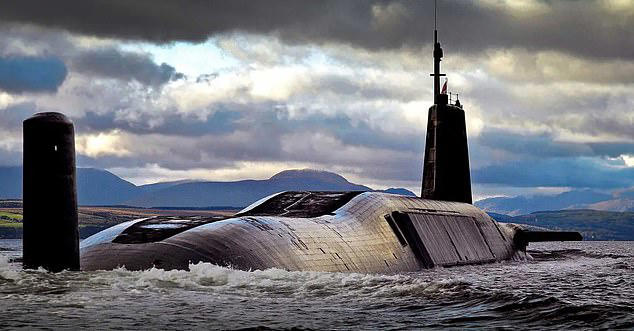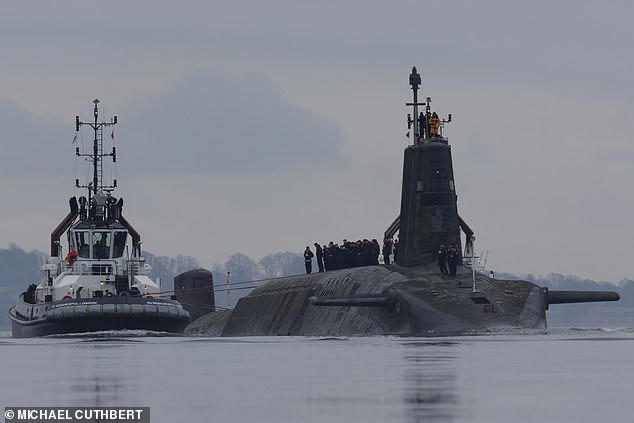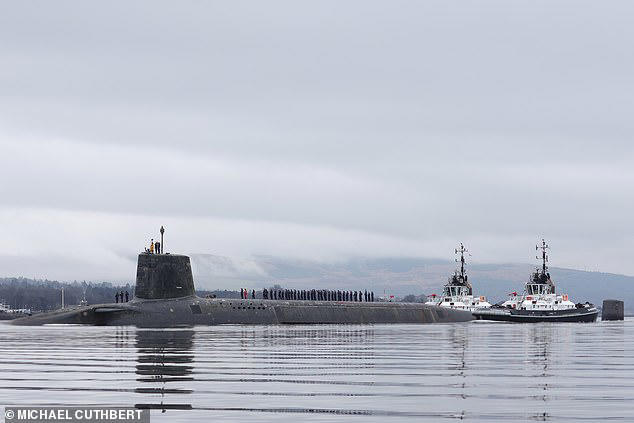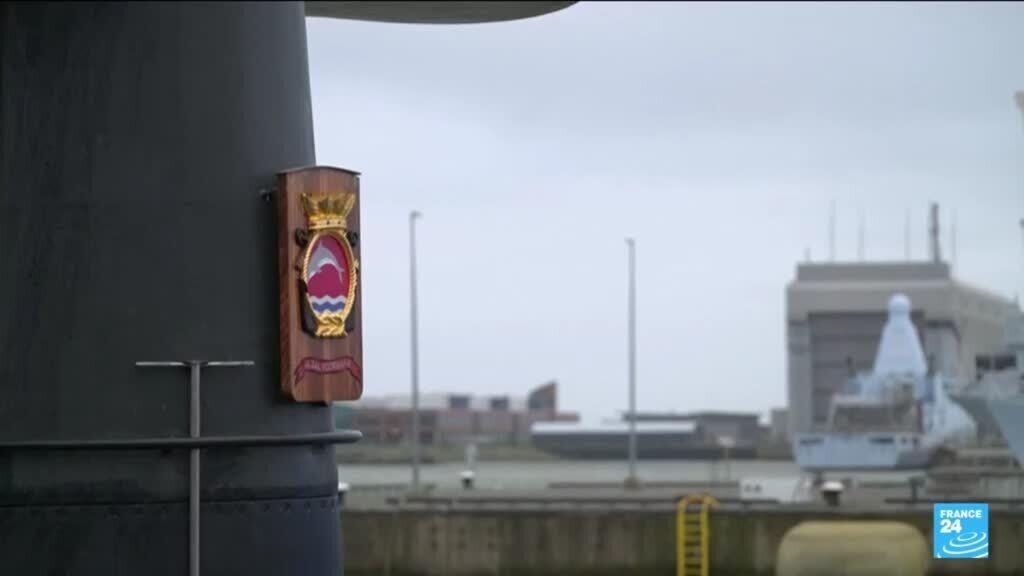Story by Mark Nicol Defence Editor •Daily Mail - 1d
A Royal Navy nuclear submarine has returned to base after a staggering 201 days submerged deep beneath the waves.
HMS Vengeance slipped back into Faslane on the Clyde on Monday following the marathon patrol, finally allowing her exhausted sailors to set foot on dry land.
Their hide-and-seek mission began on August 29 last year when the Vanguard-class craft gently glided under the surface of the North Sea.
At any time over the past seven months, the captain – who cannot be named for security reasons – could have been called upon to launch a Trident missle, Britain's nuclear deterrent. But now the 132-strong crew face arguably the biggest challenge of all, readjusting to everyday life.
For the duration of the patrol, they were unable to contact their families, see sunlight or eat fresh food. Defrosted oranges and dried egg powder featured prominently in their staple diet.

The Royal Navy's fourth and final Vanguard-class submarine - HMS Vengeance

HMS Vengeance trurning home to Faslane on March 17 after 201 days at sea
On what was one of the longest Royal Navy submarine operations ever undertaken, their lives were measured out in six-hour shifts – while their days and nights were spent squeezed into a 491ft-long metal tube.
They had their sleep disrupted, were deprived of fresh air and many suffered vitamin deficiencies. Common health issues among submariners include ear problems, joint disorders and an increased risk of certain cancers. Though, experts say the biggest trial was being cut off from their loved ones.
Related video: UK Trident missile fail: New embarrassment for the Royal Navy (WION)Duration 8:10 View on Watch
While 'attack' submarines do rise to the surface of the ocean during their missions and give their crews some respite in the process, ballistic missile vessels known as 'bombers' remain hidden on the seabed.
And as bomber submarines are 'receive only' vessels, they could read heavily vetted 'family grams' from the outside world but never respond – as sending a signal would have risked revealing the sub's location.
Meanwhile, any information or detail that could have caused them distress would also have been deleted by their captain.
Many of the events that were happening as they embarked on the mission now seem like distant memories. However, as a submarine source disclosed, HMS Vengeance's crew would have soon forgotten outside happenings after they departed His Majesty's Naval Base Clyde.

HMS Vengeance seen arriving home with the crew members standing on top of the vessel © Provided by Daily Mail
The officer said: 'The daily rhythms change soon after leaving port, everything gets shorter.
'Everything works most of the time and the submarine is impenetrable. Certainly, there are physical challenges but it is the emotional and mental aspects of the job that are more difficult.
'You worry most about what's happening to your families, someone very close to you might have taken their own lives, one of your children might have developed a dreadful disease.
'Your wife or husband might want a divorce, their could be someone different living in your house, a different car on your drive; but you just won't know.' Months later, when you finally return to port, people will have grieved, they will have moved on, everyone looks very different and seems to act very different.
'Being a submariner is an amazing job, you get paid maybe £14,000 more than a year than if you were on a sailor on a warship, but you'll miss everyone's birthdays and Christmas.'
The officer added: 'Most of the sailors on HMS Vengeance will be in their early 20s, so they might not have dependents. But for the older more senior members, they have got families and life is hugely demanding for them.
'The Royal Navy saying goes 'recruit a submariner, retain a family'. That is so true. It is harder for those we leave behind and who we come back to, in this case seven months later.'
HMS Vengeance's patrol is believed to be the second-longest in Royal Navy history, although senior naval sources refused to confirm the length of any previous deployments.
Nuclear bomber operations are supposed to be significantly shorter. But due to maintenance issues across the fleet, fully functioning submarines are spending longer at sea.
Last night, the Royal Navy said: 'Our continuous at sea deterrent protects us and our Nato Allies every moment of every day.
'We are immensely grateful to the submariners onboard, and their loved ones, for their commitment and dedication.'



No comments:
Post a Comment